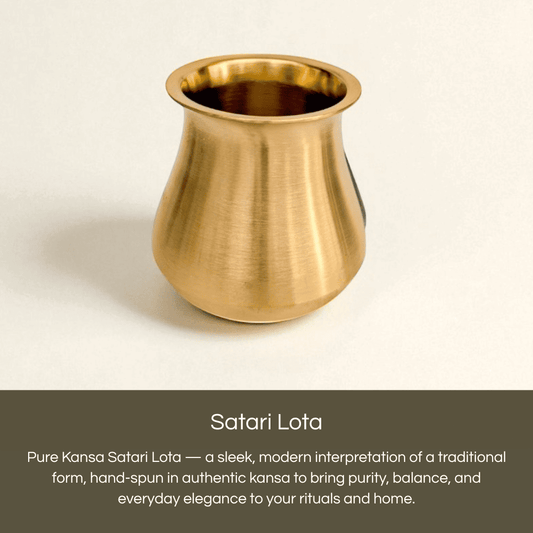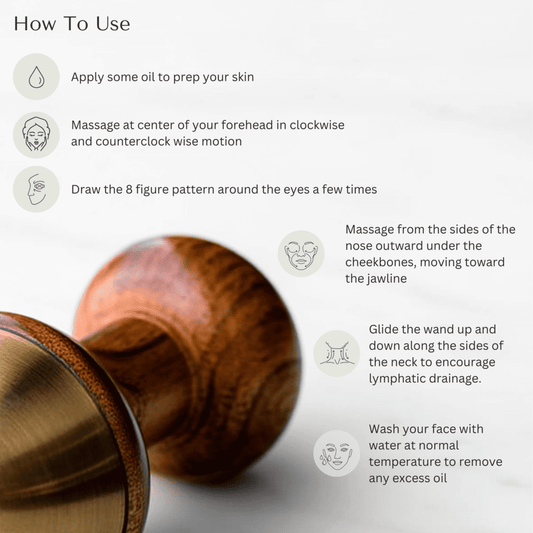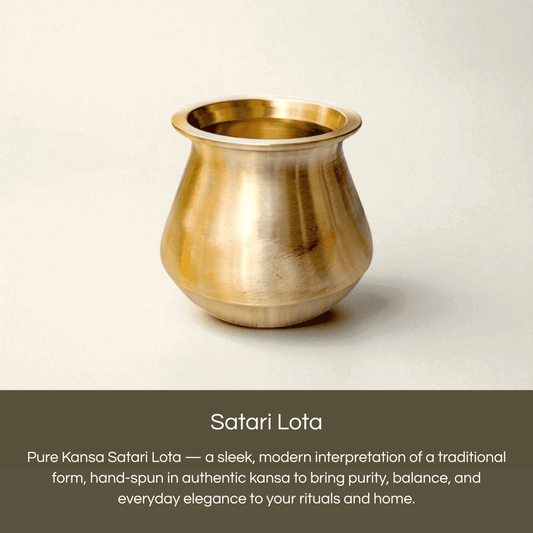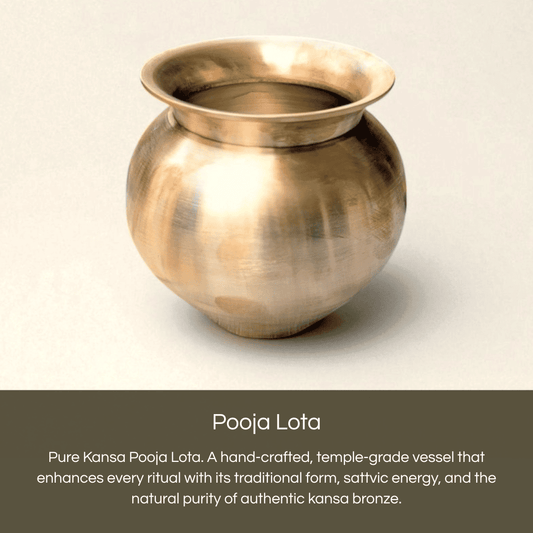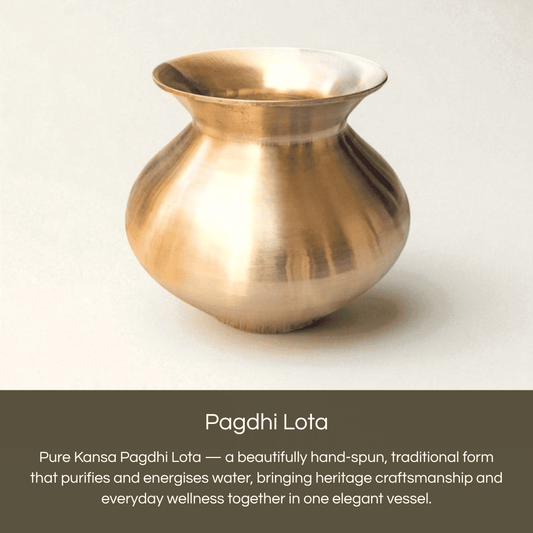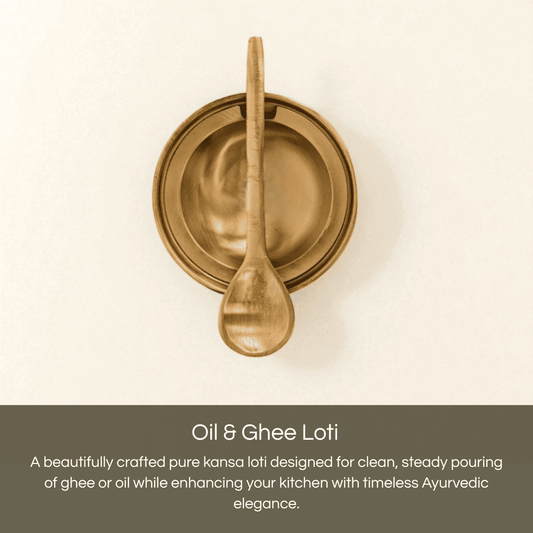
How to Clean Kansa Utensils | The Complete Guide for Shiny, Long-Lasting Kansa
Indian kitchens have relied on kansa utensils, an alloy of copper and tin often called bronze, for generations, not just for their timeless elegance but also for their natural antimicrobial properties and trace mineral benefits. Over time, even the sturdiest bronze metal utensils develop a patina that, if left unchecked, can affect both appearance and hygiene. Whether you’re using heirloom pure kansa utensils or modern bronze utensils, a simple, kitchen-friendly cleaning routine keeps them gleaming, safe, and ready for everyday cooking. Drawing on both tried-and-tested tips and proven home remedies, from gentle lemon-and-salt scrubs to occasional polishing with Brasso or Barkeeper’s Friend, this guide will walk you through every step.

Why Regular Cleaning of Kansa Utensils is important?
Keeping your bronze utensils and kansa metalware clean is more than just about looking good, it’s about health, flavour, and long-term savings. Here’s why you should make it a habit:
- Stops Tarnish Before It Builds Up: Over time, bronze and kansa develop a dull, greenish layer called patina. If you leave it, food can stick more easily and the utensil loses its shine
- Maintains Natural Antimicrobial Benefits: Pure kansa utensils are prized for their natural ability to inhibit bacterial growth. Regular washing removes food residue and keeps those antimicrobial properties working at their best.
-
Protects Flavour and Freshness: Old tarnish or leftover oils can give your curries and dal a metallic after-taste. Clean your bronze metal utensils often to ensure every meal tastes just as it should, fresh and delicious.
- Extends Utensil Life: A little maintenance goes a long way. By avoiding harsh abrasives (skip steel wool!) and using kitchen-friendly methods: you keep your kansa utensils strong and scratch-free for decades.
- Enhances Kitchen Aesthetics: Shiny, well-maintained kansa utensils not only look beautiful but also signal that you care about quality and tradition in your home.
What Ingredients You’ll Need
- Mild Dish Soap
- Baking Soda
- Warm Water
- Fresh Lemon or Lemon Juice
- Salt
- White Vinegar
- Soft Cloth or Non-Scratch Scrub Pad
- Optional: Commercial Metal Polish: Brasso or Barkeepers Friend

Step-by-Step Cleaning Process
- Rinse & Soap Wash: Rinse each piece under warm water to remove loose food. Apply a few drops of mild dish soap to a soft cloth. Gently scrub your bronze metal utensils, then rinse thoroughly.
- Lemon-Salt Scrub: Cut a fresh lemon in half and sprinkle salt on the cut side (or make a 1:2 paste of lemon juice and salt). Rub the lemon over any dull or tarnished areas of your kansa utensils in small circles. Let it sit for 5 minutes, then rinse with warm water.
- Vinegar & Baking Soda Paste: Mix equal parts white vinegar and baking soda into a thick paste. Apply this to stubborn stains on your kansa utensils. After 2–3 minutes of fizzing, lightly scrub with a non-scratch pad and rinse.
- Optional Commercial Polish: For deep-set tarnish, use a small amount of Brasso or Bar Keeper’s Friend. Follow the product label: apply, rub gently, then buff off and rinse.
- Thorough Rinse & Dry: Always rinse away all soap, acid, or polish residue. Wipe each utensil immediately with a clean, dry cloth to prevent water spots.
- Protective Finish: To slow future tarnish, rub a thin layer of food-safe oil (like coconut or vegetable oil) onto the surface. Store your kansa utensils in a dry place.
Maintenance Tips for Long-Lasting Shine
- Avoid soaking kansa / bronze utensils for hours.
- Never use steel wool or harsh abrasives, they scratch the metal surface.
- Store cookware dry; dampness encourages tarnish.
- Every few months, apply a thin coat of food-safe oil to protect the finish.
Regularly cleaning and caring for your bronze metal utensils and kansa utensils keeps them hygienic, beautiful, and durable. With simple kitchen ingredients (lemon, salt, vinegar) and the occasional polish, you can preserve that authentic shine for generations. Happy cooking!










